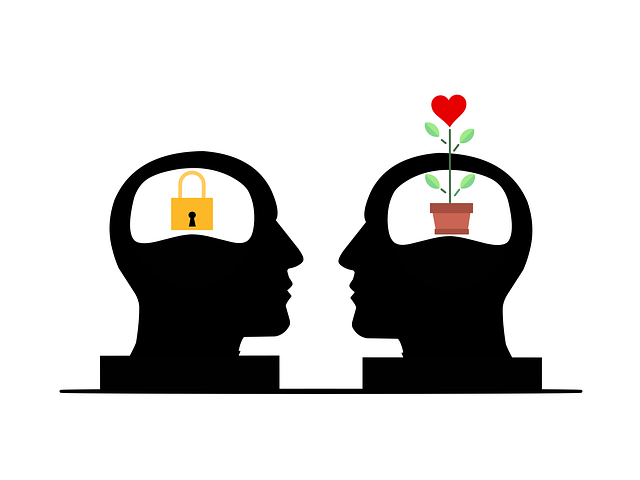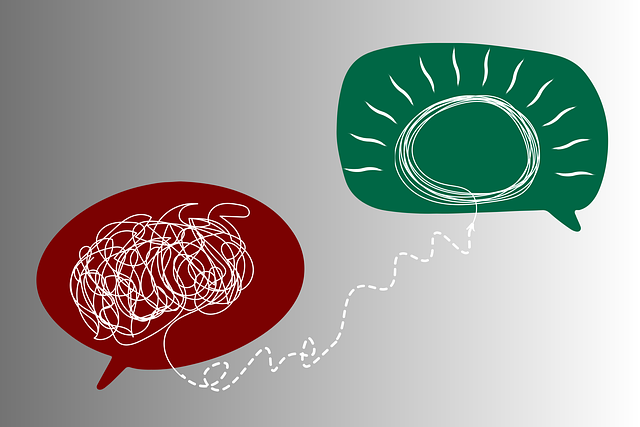Understanding your unique mental wellness needs is crucial for crafting an effective self-care routine. Mental wellness involves emotional well-being, purpose, and contentment, achieved through identifying triggers, strengths, and challenges with professional guidance (e.g., Acceptance and Commitment Therapy – ACT). ACT encourages acceptance of emotions, mindfulness, and commitment to valued actions. Tailoring self-care practices like meditation, exercise, journaling, or nature time based on these needs prevents depression and promotes balance. Integrating ACT techniques in therapy and community outreach normalizes mental health conversations while fostering resilience and meaningful actions for lasting wellness.
Developing a robust mental wellness self-care routine is essential for navigating life’s challenges. This article guides you through crafting a personalized approach, leveraging the evidence-based framework of Acceptance and Commitment Therapy (ACT) to foster lasting well-being. We’ll explore how understanding your unique mental wellness needs, embracing ACT principles, and integrating them into daily practices can lead to significant improvements in your overall mental health.
- Understanding Your Mental Wellness Needs
- Exploring Acceptance and Commitment Therapy (ACT) as a Framework
- Crafting Your Personal Self-Care Routine
- Integrating ACT into Daily Practices for Lasting Wellbeing
Understanding Your Mental Wellness Needs

Understanding your mental wellness needs is a crucial first step in developing an effective self-care routine. Every individual’s experience with mental health is unique, and what works for one person may not be suitable for another. It’s essential to recognize that mental wellness isn’t just the absence of illness; it’s about fostering emotional well-being and cultivating a sense of purpose and contentment. This involves identifying your personal triggers, strengths, and challenges, which can be done through self-reflection or seeking guidance from professionals like therapists specializing in Acceptance and Commitment Therapy (ACT).
ACT is a form of therapy that encourages individuals to accept their emotions, commit to valued actions, and become more mindful of their thoughts and behaviors. By understanding your specific needs, you can tailor self-care practices such as meditation, exercise, journaling, or spending time in nature to promote emotional well-being and prevent depression. Mental health awareness and the adoption of healthy coping mechanisms are key to maintaining a balanced and fulfilling life.
Exploring Acceptance and Commitment Therapy (ACT) as a Framework

Acceptance and Commitment Therapy (ACT) offers a powerful framework for developing a robust mental wellness self-care routine. At its core, ACT encourages individuals to embrace acceptance, mindfulness, and commitment, fostering resilience in the face of life’s challenges. This therapy promotes the idea that suffering often arises from our struggles to accept the present moment and our attempts to control every aspect of our lives. By learning to observe thoughts and emotions without judgment, individuals can develop a deeper sense of self-awareness, enabling them to make values-driven choices.
Integrating mindfulness meditation into daily practice is a key component of ACT. Regular mindfulness exercises help individuals stay grounded in the present, reducing rumination on the past or worry about the future. Additionally, building resilience through cognitive reframing and behavioral activation techniques allows people to navigate setbacks with greater ease. For mental health professionals considering this therapy, a thorough risk assessment is essential, ensuring ethical boundaries are maintained while harnessing ACT’s potential to enhance client well-being.
Crafting Your Personal Self-Care Routine

Crafting your personal self-care routine is a transformative journey that empowers you to take charge of your mental wellness. It involves identifying activities and practices that nurture your mind, body, and soul, especially in light of the challenges and pressures of daily life. This process is deeply individual, reflecting your unique needs, preferences, and circumstances. Consider incorporating techniques from evidence-based therapies like Acceptance and Commitment Therapy (ACT), which promotes mindfulness and values-driven actions. By integrating self-care into your routine, you create a buffer against stress, anxiety, and depression, fostering better mental health outcomes.
Community outreach programs can play a vital role in supporting individuals in developing sustainable self-care routines by providing resources, education, and peer support. Implementing such programs, alongside stigma reduction efforts, can help normalize conversations around mental illness, encouraging open dialogues and promoting inclusive environments. Ultimately, your self-care routine should be adaptable, allowing for flexibility as your needs evolve, ensuring long-term effectiveness in supporting your mental wellness journey.
Integrating ACT into Daily Practices for Lasting Wellbeing

Incorporating Acceptance and Commitment Therapy (ACT) into daily practices can significantly contribute to lasting mental wellness. ACT is a form of therapy that helps individuals accept their emotions and experiences, rather than trying to avoid or suppress them, fostering a mindset of flexibility and resilience. By embracing this approach, people can develop a deeper understanding of their values, break free from self-limiting beliefs, and engage in meaningful actions that align with those values. This not only aids in managing symptoms of various mental illnesses but also serves as an effective burnout prevention strategy.
Beyond its utility in mental illness stigma reduction efforts, ACT provides valuable crisis intervention guidance. It empowers individuals to navigate challenging situations with a calm mind, focusing on the present moment and committing to valued actions. By integrating ACT into daily routines, one can cultivate a profound sense of self-acceptance and psychological flexibility, ultimately leading to enhanced overall wellbeing.
Developing a mental wellness self-care routine is a powerful tool for enhancing overall wellbeing. By understanding your unique needs and exploring therapeutic frameworks like Acceptance and Commitment Therapy (ACT), you can craft personalized practices that foster resilience and growth. Integrating ACT into daily life enables individuals to accept their experiences, commit to valued actions, and cultivate a deeper connection with the present moment. This holistic approach not only provides short-term relief but also paves the way for long-lasting mental wellness and improved quality of life.












